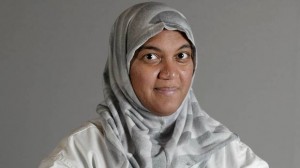Last week, Christopher Majka posted an article on rabble.ca in response to Sheema Khan’s piece in the Globe and Mail entitled “Muslim men: Stop blaming women.”
At the centre of the debate is: what is the best way to bring gender equality and rights to Muslim women? Is it at all possible? Should it be a faith-based solution or a secular one?
Sheema Khan’s article speaks to Egyptian women’s current situation under the Muslim Brotherhood’s influence, and focuses on the Brotherhood’s latest pre-marital seminars, where women are reassured of their “proper” role as men’s followers. Khan argues that the image of women as a passive observer and follower of male authorities is a myth. In her view, Muslims can find plenty of examples in Islam’s history that advocate for women’s emancipation and gender equality.
On the other hand, Christopher Majka disagrees with this view. A research associate at the Canadian Centre for Policy Alternatives, Majka draws his conclusion from his observations of Muslim women in Iran during the 70s. These experiences enable him to conclude that a faith-based approach to achieving women’s equality is not viable in modern society. For him, the Universal Declaration of Human Rights, and other documents like it, should be the basis of modern civil society, and should then be able to provide women with an equal untouchable status that does not rely on theological interpretations.
The topic in itself is quite challenging world-wide. Gender equality is not something that can be, or will be, achieved overnight (as you can see in these statistics). Today, as much as we would want to, we cannot say that women enjoy equality everywhere at all times. Even those with more access to the spheres of influence, such as female politicians, tend to be discriminated against, from the U.S. to Egypt.

In addition, gender equality is not only a matter of whether men blame women or women blame men, in contrast to Khan’s headline. It is not one gender against the other. There are women and men who benefit from patriarchal and authoritarian structures that prevent women from achieving equality. Similarly, there are men and women that work together in resisting institutions that threaten gender equality, and the United Nations Population Fund argues that men’s involvement is key to end inequality.
There are a couple of issues that I see in the debate between the two articles. First, they assume that we can paint everyone with the same brush; thus, it is assumed that gender equality means the same to everyone everywhere. Well, that might make things easier, but unfortunately what works for some does not work for others. For instance, while Khan invites us to explore Islamic history, we must also acknowledge that history is also interpreted. How Islamic history is interpreted in each particular context contributes to Muslim women’s status and access to the public sphere.

In contrast, Majka argues that secularism is the way to go. The fact is that secularism means different things in different places. For a simple example, the province of Quebec has addressed secularism in different ways from most of the rest of Canada (especially with regards to how to deal with religious clothing and other visible signs of religion), as discussed by woodturtle in a recent post.
Secularism, I would argue, has not been a guarantee of equality either to Muslim women or women in general, and can’t be counted on as inherently anti-sexist. Patriarchal systems are still going strong in secular contexts as well, and we can’t rely on secularism in itself to bring about changes.
Second, I feel that these approaches (either faith-based or secular) are often posed as mutually exclusive, when at the end of the day many Muslim women worldwide interact in both arenas. Whether through colonialism, military occupations, globalization, social media, immigration or conversions to Islam, Muslim women engage with secularism and religious-based communities.
How can one be chosen over the other?
An important factor that I feel Majka overlooks is the fact that for many Muslim women their identity as Muslim is very important and does not undermine their identity as women; some even identify as Muslim feminists. Telling Muslim women and men that secularism will solve their issues as far as gender equality goes (if secularism is understood as removing religion from the equation entirely) may not take us very far when Islam is at the centre of identity along with gender. Yet, it also seems that a faith-based approach that is closely related to the state (i.e. Saudi Arabia or Iran) can further contribute to inequalities and the marginalization of minorities.
Therefore, I believe that any attempts to bring gender equality to Muslim women should be recognize that neither approach is complete without the other. Secular ideas along with faith-based approaches could be beneficial as most of us largely interact with both spheres. Gender equality strategies should empower Muslim women and men to reflect on gender equality in their particular context. It should also enable them to recognize these principles in their own religion if we want this to be a positive change in Muslim women’s lives.












